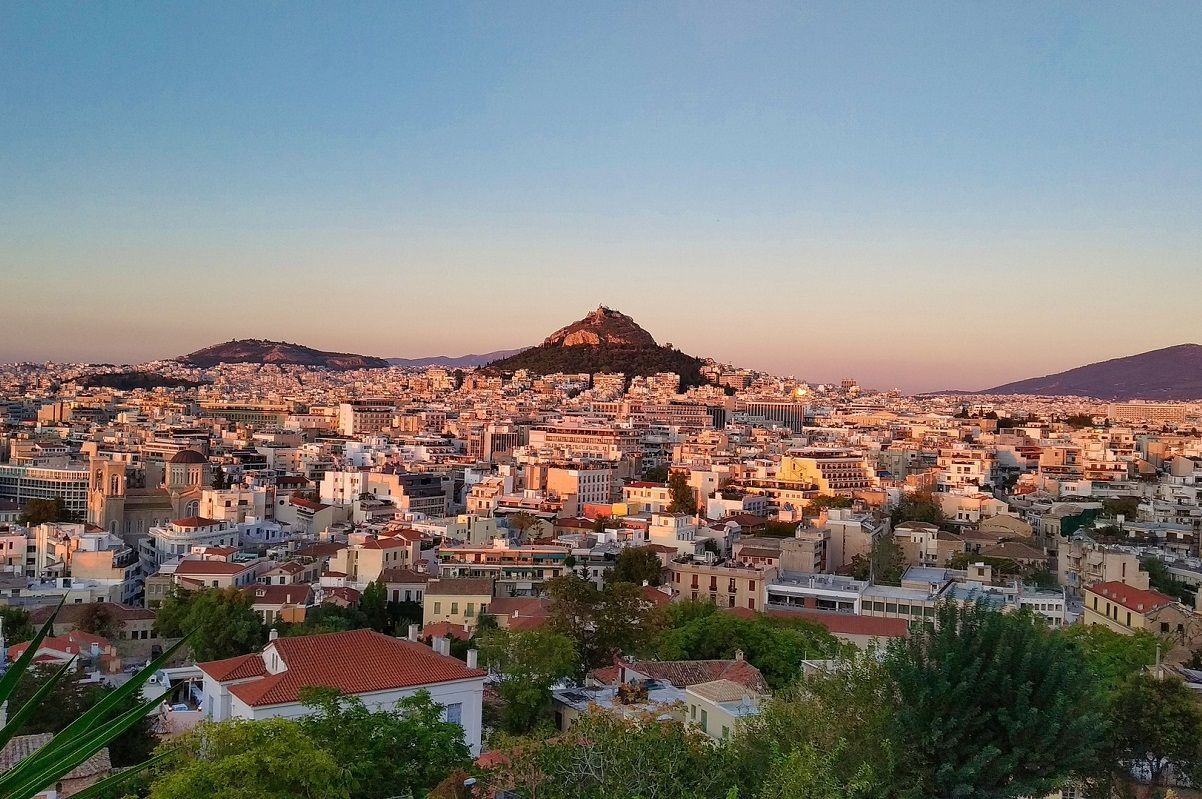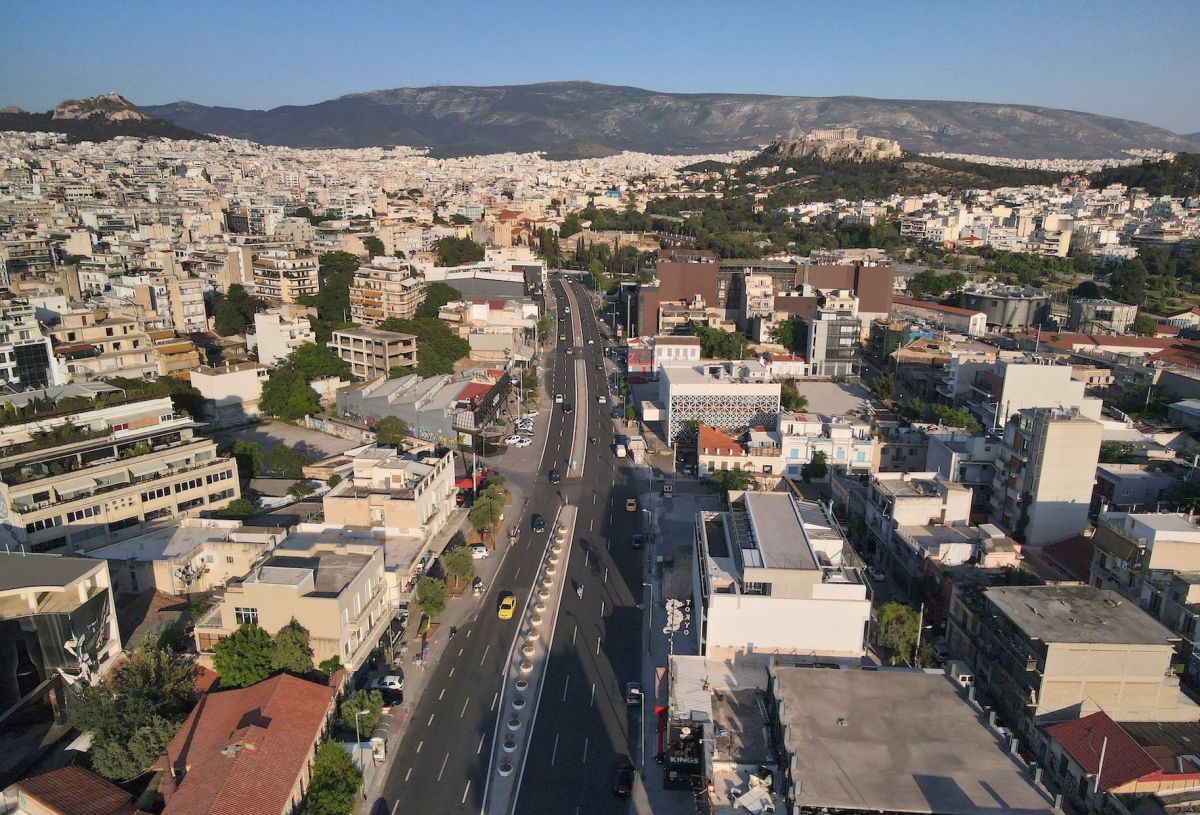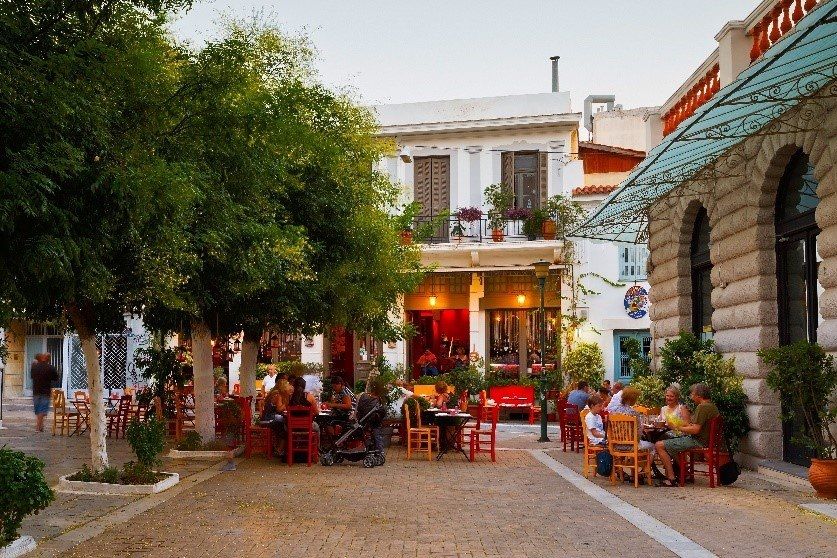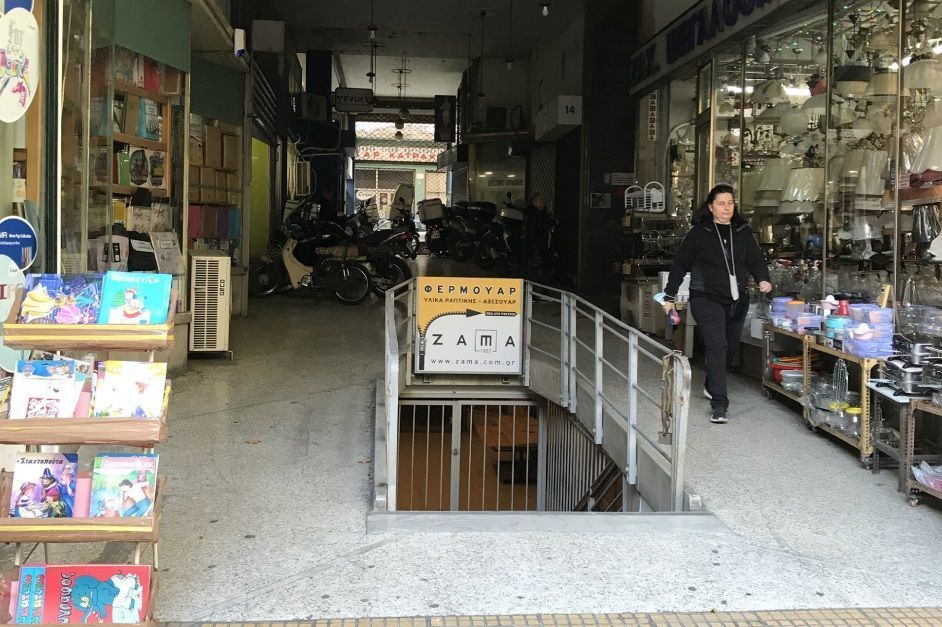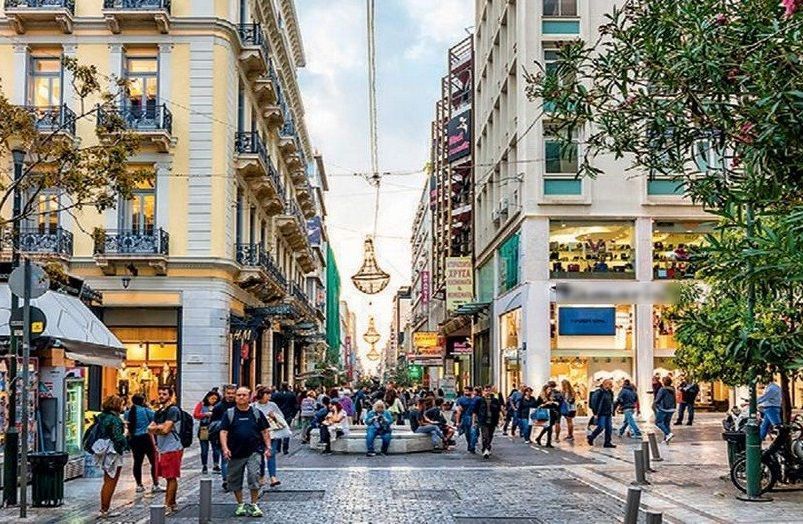Gentrification of Athens Taking Toll on SMEs, Standard of Living
The gentrification of Athens over the last few years is creating a new urban reality that is impacting both the life of residents and the viability of businesses, found a study released this week by the Hellenic Confederation of Professionals, Craftsmen, and Merchants (GSEVEE).
More specifically, the study carried out by architect and urban planner Olga Balaoura, points to the rapidly changing urban environment of Athens as a result of the economic crisis, at first, which paved the way for the devaluation of property and now the influx of investments in real estate aimed at meeting a constantly increasing tourist demand.
The result, the study found, has led to increasing property prices, skyrocketing rents and ‘forced’ displacement of residents and businesses as the city center becomes a quasi ‘theme park’ of sorts.
At the same time, the image of Athens is changing as buildings and city functionality are now focused on consumption, tourism and leisure driven by private investments in real estate and tourism-related projects and public policies that facilitate such investments.
A key indication of Athens’ gentrification is the growing long-term housing problem created in large part by the increasing number of purchased properties becoming short-term rentals.
Indicatively, according to a recent study carried out by GBR Consulting, 71 new hotels opened in Athens over the 2017-2022 period not including the Airbnb-style units.
After the economic crisis, many Greeks chose to withdraw from the long-term market and to rent out their properties as Airbnbs in order to secure higher income, particularly in high-demand areas such as central Athens and Koukaki, which drove rents upward. In 2019, home sale prices in Koukaki rose by 93 percent and rents by 58.5 percent from 2016 to 2018, a result of the Airbnb boom. Some neighborhoods like Psyrri are now evolving into exclusively tourist areas with more buyers investing in short-term rentals, boutique hotels and accommodation facilities.
According to data provided by the Institute for Research and Social Change – Eteron, in 2022, the number of properties available online for short-term tourist rental increased to 144,857 from 136,658 in pre-pandemic 2019.
“The monoculture of tourism and leisure in large parts of former traditional commercial areas and in neighborhoods where small business activity predominates alongside housing, are signs of urban restructuring, resulting in the direct or indirect displacement of residents, users and uses,” said the study, adding that it creates social and spatial inequalities and raises questions concerning policies.
The rapidly changing city center is impacting mainly small and medium-sized businesses which have been active for decades serving niche markets and reliant on a similar network of shops. The new urban reality centered on tourism and leisure and the imminent increase in rents due to demand or change of use is now forcing these businesses to shut down.
At the same time, the digitalization of sales and the emergency of so-called boutique shops together with the entry of large chain operations is making it impossible for SMEs – mostly family-owned – to remain resilient.
Indicatively, in 2019, Ermou Street – one of Athens’ main thoroughfares – moved up the list of the world’s most expensive streets to 14th spot from 15th a year earlier, and 25th in 2016, according to real estate brokers Cushman & Wakefield.
The study goes on to add that the changes come to exacerbate the cost-of-living crisis, inflationary pressures, rising taxation and soaring energy and rent costs which are now making it difficult for residents and businesses to survive in Athens.

